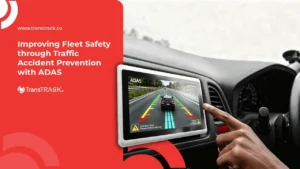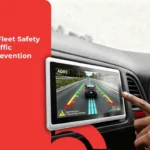Find out How to Resolve GPS Errors and Their Causes!
Posted on July 23, 2024 by Nur Wachda Mihmidati

GPS errors can be a major challenge in maintaining navigation and tracking accuracy. Various types of errors, ranging from signal interference to hardware issues, can significantly affect the performance of your GPS system. This TransTRACK article will review the common types of GPS errors, their causes, and effective solutions to overcome them. By understanding and addressing these issues, you can ensure your GPS system is functioning optimally and avoid glitches that could affect the accuracy of your navigation.
Types of GPS errors
Errors in the GPS system can affect the accuracy and reliability of navigation. Here are some common types of GPS errors:
Dilution of Precision (DOP)
DOP measures the quality of the satellite geometry used to determine position. A high DOP means that the satellite geometry is less than ideal, which can result in inaccuracies in the calculated position. There are several types of DOP, including Horizontal DOP (HDOP), Vertical DOP (VDOP), and Position DOP (PDOP).
Multipath Error
This error occurs when GPS signals bounce off objects such as buildings, ground, or vehicles before reaching the GPS receiver. These reflections cause additional signals that can interfere with or worsen position accuracy.
Satellite Geometry Error
This error is related to the relative position of the satellites used to determine location. If the satellites are too close to each other in the sky, or in an unfavorable configuration, the positioning accuracy may degrade.
Understanding and mitigating these types of errors is important for improving the accuracy of GPS systems in various applications.
Common Causes of GPS Errors
GPS errors are often a nuisance when used. Here are some common causes of GPS that often experience errors:
Signal Interference from the Surrounding Environment
GPS signals can be blocked or reflected by physical objects such as tall buildings, bridges, or mountains. This is known as “shadowing” or “obstruction,” which reduces the strength of the signal received by the GPS receiver. In addition, large objects can cause signal reflections that lead to “multipath errors,” where reflected signals interfere with the direct signals from satellites.
Hardware Problems
Damage or low quality in GPS hardware, such as antennas or receivers, can cause unstable or inaccurate signals. For example, a damaged or dirty antenna can reduce the device’s ability to receive signals properly. Damaged internal components can also interfere with signal processing and position calculation.
Software Errors
Bugs or errors in GPS software can affect the way the device processes signals and calculates position. These issues can be caused by outdated software versions or incorrect configuration. Software or firmware updates are often required to fix these errors and improve system performance.
Adverse Weather Conditions
Extreme weather conditions such as heavy rain, snow, or storms can affect the quality of GPS signals. While GPS can function in normal weather conditions, very intense bad weather can cause interference with satellite signals or increase atmospheric disturbances, which can affect positioning accuracy.
Improper Settings on the GPS Device
Incorrect settings on the GPS device, such as coordinate configuration or data format, may lead to inaccurate position calculations. Settings that do not match the application or usage environment can also reduce the effectiveness of the GPS system.
By understanding and addressing these common causes of GPS errors, you can improve the accuracy and reliability of your navigation system.
How to Fix GPS Error
Solving GPS errors requires attention to several important aspects to ensure your navigation system is functioning optimally. Here are some practical steps you can take:
Update GPS Software
Always make sure your GPS device is using the latest software or firmware version. These updates often include bug fixes and performance improvements that can resolve any errors that may occur.
Check and Correct Device Settings
Check your GPS device settings to ensure they are configured correctly. Incorrect settings may cause inaccurate position calculations and impair GPS performance.
Avoiding Areas with Signal Interference
Try to use GPS in open areas free of signal interference, such as under tall buildings or near large objects that can reflect signals. An environment free of interference can improve GPS accuracy.
Using Additional GPS or Assistive Devices
Consider using external antennas or additional GPS systems to improve signal accuracy. These tools can help overcome the limitations of standard devices and improve tracking results.
Keeping the Device in Good Condition
Take care of your GPS device by keeping it clean and in good physical condition. Regular checks and preventive maintenance can prevent damage that can affect signal quality and accuracy.
Knowing the common causes and ways to resolve GPS errors can help you maintain the accuracy and reliability of your navigation system. However, if you are looking for a more reliable solution and comprehensive technical support, a GPS Tracker from TransTRACK is the right choice. We offer GPS devices with cutting-edge technology designed to minimize errors and interference.
With a GPS Tracker from TransTRACK, you not only get advanced technology but also satisfactory after-sales service. If something goes wrong during installation or other issues, we provide free maintenance to ensure your device is functioning properly. Contact us now to get the best GPS Tracker and unrivaled technical support!
Topic :
Recommended Articles

Improving Fleet Safety through Traffic Accident Prevention with ADAS
Featured Product | February 12, 2026
 Bahasa Indonesia
Bahasa Indonesia







